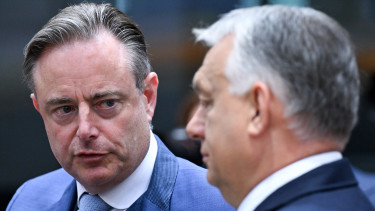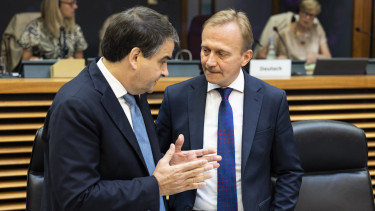EU funds
Hungarian medical research centre wins EUR 15 mn EU grant
In 2014, the EU launched a funding scheme for member states and associated countries whose R&D and innovation performance was below top European countries. The Hungarian Centre of Excellence for Molecular Medicine has now won a grant of EUR 15 million as one of 10 winning applications, and the Hungarian government and various partner institutions have contributed co-financing of nearly double that amount, which means H-CEMM will have a budget of HUF 15 billion until 2024, Bíró said. An international panel will select the research teams that will join the centre, with scientific excellence as the primary criteria.
According to plans, the institution will incorporate 30 research teams until 2024, which means it will represent significant scientific potential in European comparison, the director told the press.
In addition to receiving substantial funding, the research teams will also participate in a partnership programme with the Heidelberg-based European Molecular Biology Labolatory (EMBL), a top five research institute in life sciences.
The six initial teams will focus on research including gene therapy for cardiovascular diseases, treatment for psoriasis, bioinformatics analysis of metabolism, the molecular mechanisms of tumors, the regulatory process of early inflammatory response, and the effects of fatty liver disease on heart muscle disorders.
H-CEMM is already evaluating applications for the next 10 to 12 research teams that could join the institute in September, and will also invest in infrastructure projects in its partner institutions (SE, SZTE and SZBK).
Cover photo by MTI / Bea Kallos
According to plans, the institution will incorporate 30 research teams until 2024, which means it will represent significant scientific potential in European comparison, the director told the press.
In addition to receiving substantial funding, the research teams will also participate in a partnership programme with the Heidelberg-based European Molecular Biology Labolatory (EMBL), a top five research institute in life sciences.
The six initial teams will focus on research including gene therapy for cardiovascular diseases, treatment for psoriasis, bioinformatics analysis of metabolism, the molecular mechanisms of tumors, the regulatory process of early inflammatory response, and the effects of fatty liver disease on heart muscle disorders.
H-CEMM is already evaluating applications for the next 10 to 12 research teams that could join the institute in September, and will also invest in infrastructure projects in its partner institutions (SE, SZTE and SZBK).
Cover photo by MTI / Bea Kallos

This article is part of the work programme titled "The impacts of EU cohesion policy in Hungary - Present and Future" which is carried out by Net Média Zrt., the publisher of Portfolio.hu, between 1st April 2019 and 31st March 2020 with European Union financing. The views in this article solely reflect the opinions of the author. The European Commission as the funding entity does not take any responsibility for the use of information presented in this article.















